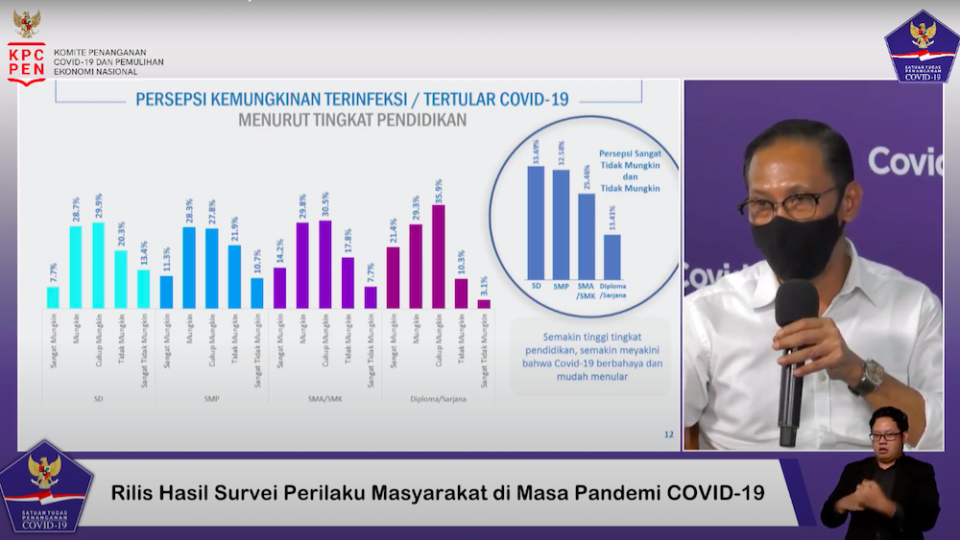There’s a correlation between one’s level of education and one’s perceived vulnerability to COVID-19, a study in Indonesia has shown, where a relaxed attitude towards the pandemic adopted by many has undoubtedly contributed to the worrying upward trend of the disease in the country.
According to the Central Statistics Agency (BPS), less educated Indonesians are more likely to believe that they’re not vulnerable to the coronavirus, as shown in a survey conducted from Sept. 7-14.
“Seventeen percent of respondents said they thought it would be very unlikely or impossible for them to contract COVID-19… I feel that this is a high percentage,” BPS Head Suhariyanto said in an online press briefing with the National Disaster Mitigation Agency (BNPB) this afternoon.
Of the 17 percent, 33.69 percent of respondents were elementary school graduates and 32.5 percent were junior high school graduates. High school graduates (25.48 percent) and university graduates (13.41 percent) rounded out the group.
“In terms of gender, there was no difference. Males and females were the same in this regard,” Suhariyanto said.
If extrapolated into Indonesia’s population of around 260 million, 17 percent represents around 50 million people.
Indonesia continues to record worryingly high numbers of COVID-19 cases seven months since the outbreak officially began in the country, with no discernible signs of the numbers plateauing anytime soon. As of today, Indonesia has 278,722 confirmed COVID-19 cases — an increase of 3,509 cases from the previous day — including 10,473 deaths.



